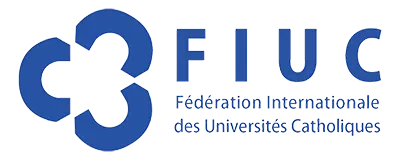Artificial and human intelligence

What does it mean to be human in the age of neuroscience and artificial intelligence?
This is the main question that the NHNAI project seeks to answer!
Why? To provide an ethical compass to frame action
How? By raising ethical awareness through a collective societal debate
Who? An international network of researchers from Catholic higher education institutions.
With whom? Stakeholders in various regions of the world
THE NHNAI PROJECT IN BRIEF
The NHNAI project – New Humanism in the Age of Neuroscience and Artificial Intelligence – was officially launched in January 2022 under the aegis of the International Federation of Catholic Universities (IFCU).
The project is coordinated by the Confluence research centre of the Catholic University of Lyon (France), with Dr. Mathieu Guillermin as the main leader, and brings together multiple partners around the world, with very diverse profiles (philosophers, ethicists, theologians, experts in religious studies, historians, medical scientists, anthropologists, etc.)
In particular, the project focuses on three key areas that are strongly affected by the upheavals generated by recent technological advances: health – education – democracy.
MAIN HYPOTHESES AND OBJECTIVES
1. THE NOTION OF THE HUMAN REMAINS A BLIND SPOT
We commonly invoke the notion of ‘human’ (e.g. human good or human flourishing, human-centred technology, human nature) or key concepts closely related to it (such as dignity or autonomy), but the notion as such remains ambiguous and problematic in the face of the disruptions caused by the new knowledge and technologies of globalisation.
The notion of “autonomy” is not a new concept, but it remains ambiguous and problematic in the face of the disruptions caused by new knowledge and technologies stemming from neuroscience (NS) and artificial intelligence (AI).
The absence of a shared, reliable and relevant understanding of what humanism is and means prevents us today from building a compass that frames the main challenges we face from an ethical, moral and spiritual point of view.
2. WE NEED AN ETHICAL COMPASS
The societal challenges raised by AI and new technologies are numerous.
These include data-driven decisions, persuasive technologies, neuromodulation through neural implants or human enhancement. These challenges highlight the urgent need for all relevant actors and stakeholders concerned to go beyond the mere technical and practical aspects of the development of these areas to also consider their ethical, moral and spiritual dimensions.
A CAPACITY BUILDING PROJECT TO RAISE ETHICAL AWARENESS AND EMPOWER SOCIETY
The NHNAI will trigger ethical capacity building by initiating and facilitating, in the countries of each partner university, an informed and integral societal reflection on the issue of humanism in the NS and AI era.
The project aims to contribute to the emergence of a critical mass of agents of transformation who take an integral approach and frame the challenges posed by AI and NS through the prism of humanism. These agents of transformation can be individuals or organisations such as academics, engineers, economic actors, policy and decision makers, actors in the field of education or health, concerned citizens, etc.
These officials will be invited to participate in capacity-building workshops and digital debates, which will develop recommendations for ethical regulation, i.e. a “compass” for the development of the European Union.
contact: montserrat.alom@bureau.fiuc.
